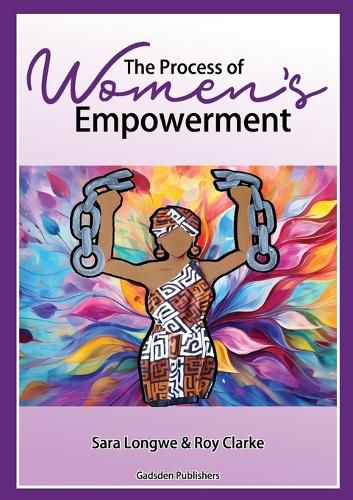Readings Newsletter
Become a Readings Member to make your shopping experience even easier.
Sign in or sign up for free!
You’re not far away from qualifying for FREE standard shipping within Australia
You’ve qualified for FREE standard shipping within Australia
The cart is loading…






This title is printed to order. This book may have been self-published. If so, we cannot guarantee the quality of the content. In the main most books will have gone through the editing process however some may not. We therefore suggest that you be aware of this before ordering this book. If in doubt check either the author or publisher’s details as we are unable to accept any returns unless they are faulty. Please contact us if you have any questions.
This book begins with a 'cautionary tale' about a development wide area in rural Zambia, with the purpose of lessening the burden of labour on women who previously had to fetch water from faraway streams. The result of the programme was exactly the opposite - it had the actual effect of increasing women's burden of labour. In this book, Longwe and Clarke seek to explain how a more considered approach can avoid such farcical disaster.
Central to women's advancement is their own collective participation in the process of recognising and overcoming the instances of systemic gender discrimination which stand in their way. The Longwe Empowerment Framework, which provides the central core of this book, sets out five essential elements of collective action by which women can obtain more control over their own labour and their own lives, in a continuous process of increasing collective empowerment. This empowerment process, being self-generative, is seen as being equally as important as the resulting material benefits.
Hope Chigudu, a noted feminist and gender consultant, concludes her preface to this book by writing that...
" in a nutshell ... it offers an analytical framework for identifying the potentially progressive and regressive factors to anticipate at each stage of a women's empowerment programme, and how to dance with the power dynamics that are inevitable in a patriarchal world."
$9.00 standard shipping within Australia
FREE standard shipping within Australia for orders over $100.00
Express & International shipping calculated at checkout
This title is printed to order. This book may have been self-published. If so, we cannot guarantee the quality of the content. In the main most books will have gone through the editing process however some may not. We therefore suggest that you be aware of this before ordering this book. If in doubt check either the author or publisher’s details as we are unable to accept any returns unless they are faulty. Please contact us if you have any questions.
This book begins with a 'cautionary tale' about a development wide area in rural Zambia, with the purpose of lessening the burden of labour on women who previously had to fetch water from faraway streams. The result of the programme was exactly the opposite - it had the actual effect of increasing women's burden of labour. In this book, Longwe and Clarke seek to explain how a more considered approach can avoid such farcical disaster.
Central to women's advancement is their own collective participation in the process of recognising and overcoming the instances of systemic gender discrimination which stand in their way. The Longwe Empowerment Framework, which provides the central core of this book, sets out five essential elements of collective action by which women can obtain more control over their own labour and their own lives, in a continuous process of increasing collective empowerment. This empowerment process, being self-generative, is seen as being equally as important as the resulting material benefits.
Hope Chigudu, a noted feminist and gender consultant, concludes her preface to this book by writing that...
" in a nutshell ... it offers an analytical framework for identifying the potentially progressive and regressive factors to anticipate at each stage of a women's empowerment programme, and how to dance with the power dynamics that are inevitable in a patriarchal world."